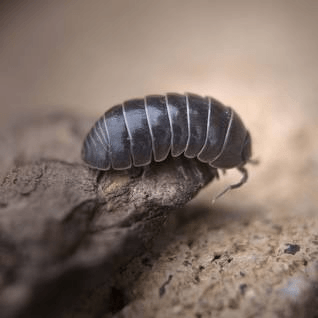The part of the stream where water collects to flow downstream, including the streambed, gravel bars, and stream banks; also, a dredged passageway within a coastal bay that allows maritime navigation.
Channel
What type of organisms would you find in a first-order stream?
Small fish (minnows), grass, and certain invertebrates.
How have aquatic plants adapted to fast-moving rivers or streams?
Plants have a long, thin, flexible stems that offer little resistance to the current and strong root systems to hold them in place
What is the term for streams that have multiple intertwining channels?
Braided Stream
Particles of fine sand and silt are part of what load?
Suspended Load
Salt water

Cookie cutter shark
Wings (majority)
Head
Thorax
Abdomen
Six legs
Antenae
Name three actors/actresses that have been in more than one Tim Burton film.
Johnny Depp, Helena Bonham Carter, Christopher Lee, and Michael Gough. Other actors that Burton has worked with repeatedly include Alan Arkin, Danny DeVito, Conchata Ferrell, Albert Finney, Carmen Filpi, Eva Green, Pat Hingle, Jan Hooks, Rance Howard, Jeffrey Jones, O-Lan Jones, Michael Keaton, Martin Landau, Lisa Marie, Jack Nicholson, Catherine O'Hara, Michelle Pfeiffer, Missi Pyle, Paul Reubens, Alan Rickman, Deep Roy, Winona Ryder, Diane Salinger, Glenn Shadix, Martin Short, Timothy Spall, Terence Stamp, Sylvia Sidney, Christopher Walken, Frank Welker, and Paul Whitehouse.
This NFL team is the only team to use a plant as its logo.
New Orleans Saints
Edges of a stream/river channel that are above the water level are called the___________________.
bank
What is the highest order a stream can be?
There is no limit.
How have sculpins and many darter species adapted as bottom clingers?
They have flattened heads and large pectoral fins that are angled to help them stay on the bottom in swift currents
When a stream from one watershed is “captured” by a stream from another watershed that has a higher rate of erosion it is called ________________.
Stream Piracy
Minerals that are transported in water as a solution are known as _________________.
Dissolved Load
Salt water
Giant squid
Insects belong to what phylum?
Arthropoda (arthropods)
What is the only mammal that cannot jump?
Elephant
What type of animal was the first to be cloned?
For double points, what was the name?
Sheep
The part of the stream channel that is below the water level is called the _________________.
bed
When does the number of stream orders stop?
When the stream/river exits into the ocean/sea/bay.
How have insect nymphs adapted to life in the water?
Aquatic insects have legs adapted for swimming. They have gills that are attached at the rear end of the insect. Some have streamlined bodies and strong legs that allow them to hang on to rocks underwater.
The change in elevation over a given distance for a stream or river is called _________________.
Gradient
In a meandering river, the suspended load moves faster in which part of the river?
On the outside of the curve.
Freshwater

piranha
Insects go through what two types of metamorphosis?
1. Simple/ Partial/ Primitive
2. Complete/ Advanced
Name three animals that were brought to extinction by humans and are being brought back to life through CRISPR sequencing (cloning).
The wooly mammoth, dodo, passenger pigeon, Thylacine (Tasmanian wolf/tiger)
What is Mr. Mac's zodiac sign?
Scorpio
The area of land that is drained by a river system is the _________________.
Watershed
As a first-order stream flows and has 5 larger streams flowing into it, what order will it be at the end?
Sixth-order stream.
How have fish adapted to higher-order streams and rivers?
Fish that live in higher-order streams do not need stream-lined bodies. Fish in these streams and rivers can have all types of body shapes. However, the water will usually be more turbid and slower moving with higher-order streams and rivers, so fish adapt to these changing conditions.
At the beginning of a stream, the gradient generally is steep. This area of the stream has a high velocity, which causes rapid channel erosion this is known as the ________________________.
Headwaters
DOUBLE POINTS
In naturally flowing streams, it’s common to see what sequence of fast and slow-moving waters?
riffle-run-pool-run-riffle
Freshwater
:max_bytes(150000):strip_icc()/jellyfish-sting-erin-56a2f4995f9b58b7d0cfdc60.jpg)
jellyfish
What are insects' and bugs' closest relatives?
Crustaceans (crabs, lobster, crayfish)
What is the largest known organism?
Humongous Fungus (2,384 acres)
How many bones does a shark have?
0
When a stream flows into a lake or a larger stream, it is called ___________________.
Tributary
What organisms would you expect to find in a fourth-order stream?
Both rooted and floating aquatic plants and many types of animals have a niche in which to live. Examples: algae, water willow, coontail, sycamore, mayfly, gilled snail, crayfish, damselfly, scud, channel catfish, bluegill, largemouth bass, and longnose gar.
DOUBLE POINTS-Name this fish.

sculpin
Where the stream enters a larger body of water, its gradient often becomes flatter. This is known as a tributary or a ________________________.
Mouth
If a bear were to fall into a river and was unable to fight against the current, what load would it be?
Bed load
Saltwater

Sea urchin
This "bug" is found on land but is actually a crustacean.
Roly Poly (pill bug)

Coffee and chocolate are both ________________.
Fruit
Not only does this mammal not have a stomach, but the milk that it produces for its young is found in the armpit. Also, while looking for food, the animals eyes and ears close up, leaving it to rely on the detection of electrical impulses to find its prey.
Platypus